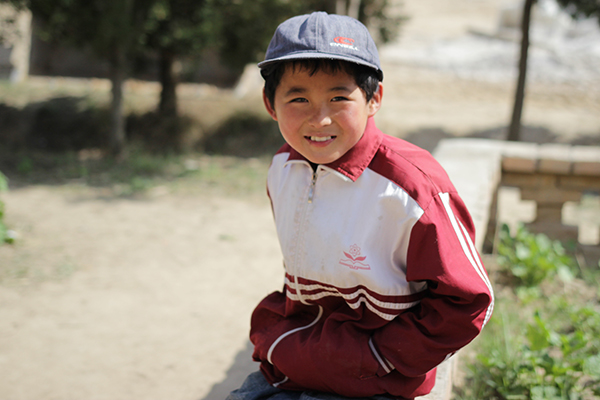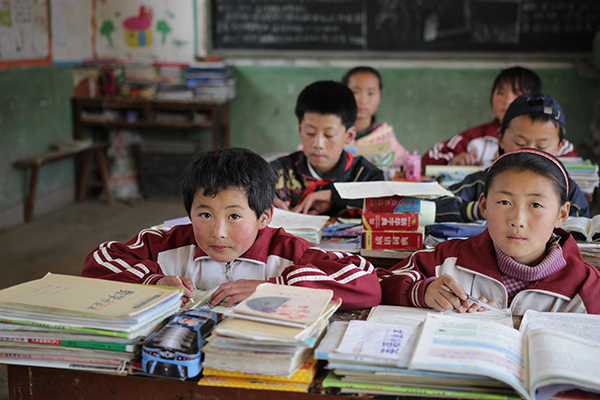We aim to promote equal access to education and the implementation of multicultural education. Oxfam’s work in basic education mainly focuses on the western areas of mainland China, including Quizhou, Yunnan and Gansu. We work with our partner organisations to support the establishment of schools, train up volunteers as assistant teachers, and provide teachers with training in local curriculum development, and bilingual teaching in Chinese and the native languages of ethnic minority children. Besides, we also implement programmes on pre-school education, provide companionship to left-behind children and education to migrant children, and influence policies through advocacy work.
Basic education programme has been one of the major interventions of Oxfam Hong Kong (Download |Chinese only)
Basic education programme has been one of the major interventions of Oxfam Hong Kong’s poverty alleviation work. OHK’s basic education programme focuses on equity and quality of education. At present, the basic education programme areas cover Guizhou, Gansu, Yunnan and Beijing. This brief includes the analysis of the new development stage of rural basic education, issues faced by rural-urban migrant children, left-behind children and related issues after closing some small-scale schools. It highlights the objectives, strategies, milestones, major outputs and outcomes on policy advocacy, and good practices of basic education programme.
Missing Mama
Jian is a primary one student at Beiping Primary School in Yangji Township, Huining County, Gansu Province. His mum went to Xining to work while his dad stayed behind to take care of Jian and his little sister. However, Jian’s dad is rather impatient and uses corporal punishment to discipline him and his sister. Since he’s afraid of being punished by his dad, Jian’s gradually learnt to tell lies to protect himself, and has become somewhat of a problem child in both the eyes of his teachers and parents.

Many people who live in the remote areas of the western region of China move to the city in search of work. Oftentimes though, this means leaving their children behind; growing up without their parents around makes these children – much like Jian – vulnerable to everything from behavioral to emotional problems. As such, we have been addressing the issue in provinces like Yunnan, Guizhou, Gansu, and have been working to provide schools, families and communities with support. We have also been providing left-behind children with assistance in various areas, including their education, as well as their physical, mental and emotional well-being.
In order to offer more encouragement to students like Jian, we support our partner Rainbow Volunteer Club’s efforts to recruit more volunteer assistant teachers. We sent Mr. Guo, one such teacher, to a school in a remote rural village in Huining County to offer companionship to left-behind children, and to play with and listen to them. Mr. Guo said, ‘Over 60 per cent of the children at this school are left-behind children. Behind all their mischief is really just the desire for affection.’

Because volunteer assistant teachers befriended these children, they began to open up. Mr. Guo told us, ‘Jian is becoming more and more cheerful, self-confident, and is breaking the habit of lying.’ Having become a volunteer assistant teacher, Mr. Guo now has a more profound understanding of poverty.
Note: Jian has since graduated from primary school and is now in lower secondary school. We continue to work with Rainbow Volunteer Club to send volunteer assistant teachers to areas in need to provide left-behind children and their parents with the necessary support.
Photo: Chen Mi / Rainbow Volunteer Club

